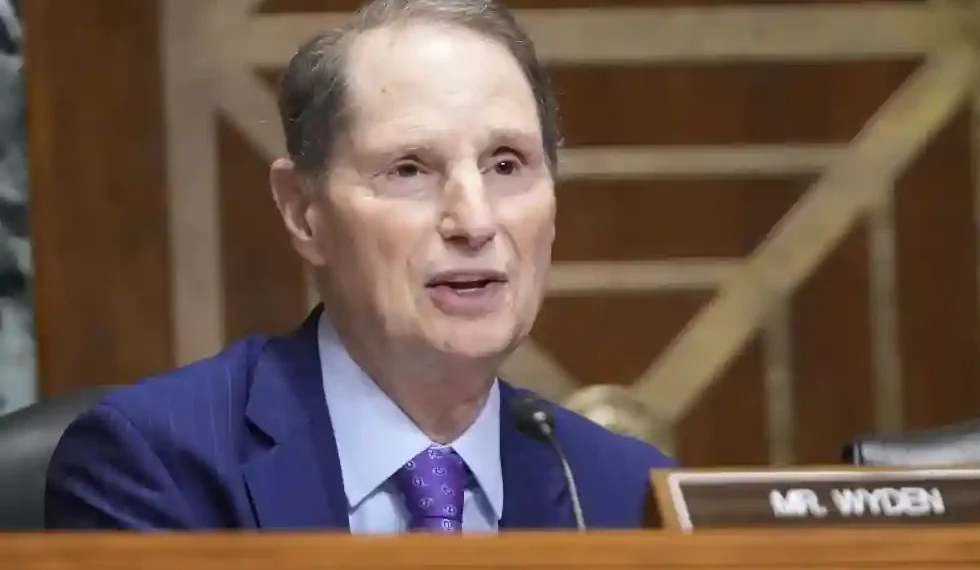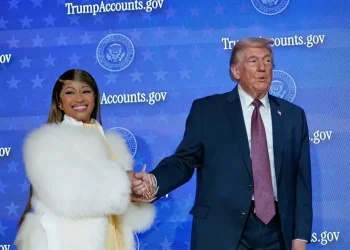Senate Votes Down Effort to Block Trump’s Global Tariffs Amid Economic Uncertainty
WASHINGTON – In a narrow vote, Senate Republicans rejected a Democratic resolution on Wednesday that sought to block President Donald Trump’s global tariffs, giving the president a small victory as lawmakers from both parties continue to question his trade policies.
Trump’s sweeping tariffs, which he announced on April 2, targeted nearly all of the U.S.’s trading partners. However, following a sharp market downturn, he reversed course a few days later, suspending the import taxes for 90 days. Despite the suspension, uncertainty looms over U.S. businesses and consumers, especially after new data showed the economy contracted by 0.3% from January to March — the first dip in three years.
The Senate voted 49-49, with key figures like Senate Majority Leader Mitch McConnell and Democratic Sen. Sheldon Whitehouse absent, preventing the resolution from passing. This vote comes just weeks after the Senate narrowly passed a measure that would have blocked tariffs on Canada.
Democrats were determined to force a vote, hoping to push Republicans on record and assert Congress’s role in trade decisions.
Sen. Ron Wyden (D-OR), one of the resolution’s lead sponsors, criticized the tariff strategy, saying, “The Senate cannot be an idle spectator in the tariff madness.”
Despite the growing concerns, Republican leaders warned their members not to support the measure, wary of challenging Trump directly. Vice President JD Vance met with U.S. Trade Representative Jamieson Greer to assure GOP senators that progress was being made on trade deals with individual countries.
Before the vote, some Republicans expressed mixed feelings. Senator Susan Collins (R-ME) acknowledged the resolution’s broad nature but backed it to send a message that the U.S. needs a more strategic approach to tariffs, particularly with allies like Canada. “We cannot treat our allies like we treat adversaries like China,” Collins said.
On the other hand, Senator Thom Tillis (R-NC) criticized the vote as a “political stunt,” favoring legislation that would give Congress more power over tariffs but rejecting the resolution as ineffective.
Senate Democratic Leader Chuck Schumer (D-NY) seized the moment to highlight the potential economic consequences of Trump’s tariff strategy, saying the latest economic numbers should serve as a “wake-up call” for Republicans. He argued that the tariffs could be tipping the U.S. toward a recession and sending markets into turmoil.
Democrats, particularly Senator Elizabeth Warren (D-MA), took aim at the president’s use of tariffs, with Warren calling Trump’s national emergency a “fake” crisis. “These tariffs are pushing our economy off a cliff,” Warren said.
Despite the mounting criticism, President Trump stood by his tariffs, particularly the ones targeting China. He claimed that the tariffs had put significant pressure on China, stating that their factories were struggling.
Trump also brushed off concerns about the impact on U.S. consumers, saying that the tariffs might mean children will have “two dolls instead of 30 dolls,” adding, “Maybe the two dolls will cost a couple bucks more than they would normally.”
As the Senate wraps up this vote, it’s clear that the debate over tariffs will continue to play a pivotal role in the U.S. economy. With the resolution’s defeat, Trump’s tariffs remain in place, and the political division over trade policies shows no sign of easing anytime soon.
This article was rewritten by JournosNews.com based on verified reporting from trusted sources. The content has been independently reviewed, fact-checked, and edited for accuracy, neutrality, tone, and global readability in accordance with Google News and AdSense standards.
All opinions, quotes, or statements from contributors, experts, or sourced organizations do not necessarily reflect the views of JournosNews.com. JournosNews.com maintains full editorial independence from any external funders, sponsors, or organizations.
Stay informed with JournosNews.com — your trusted source for verified global reporting and in-depth analysis. Follow us on Google News, BlueSky, and X for real-time updates.













